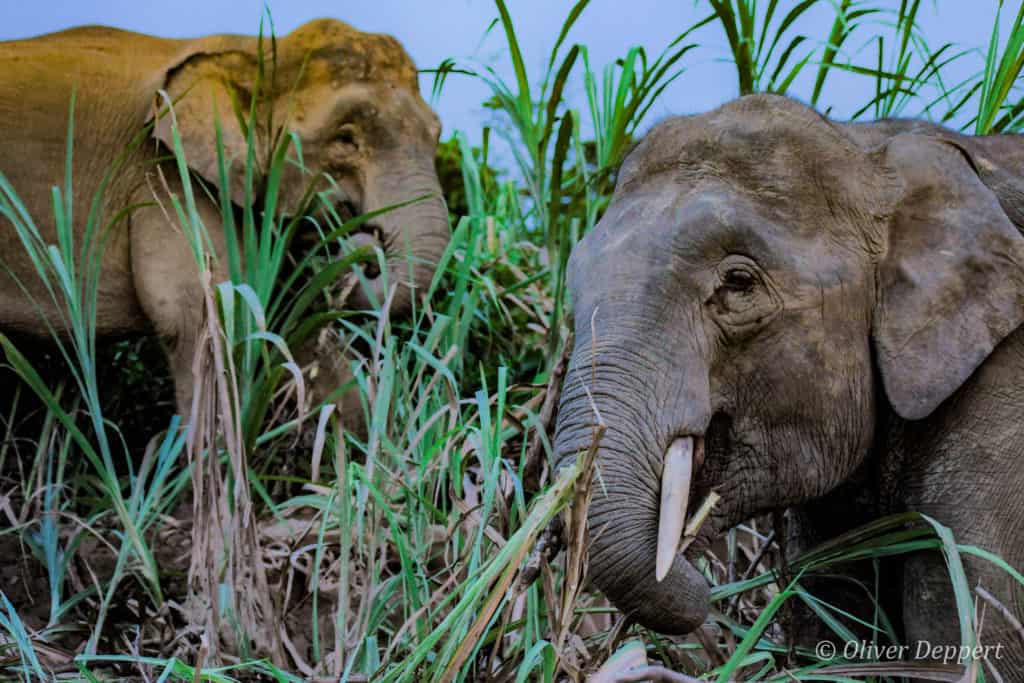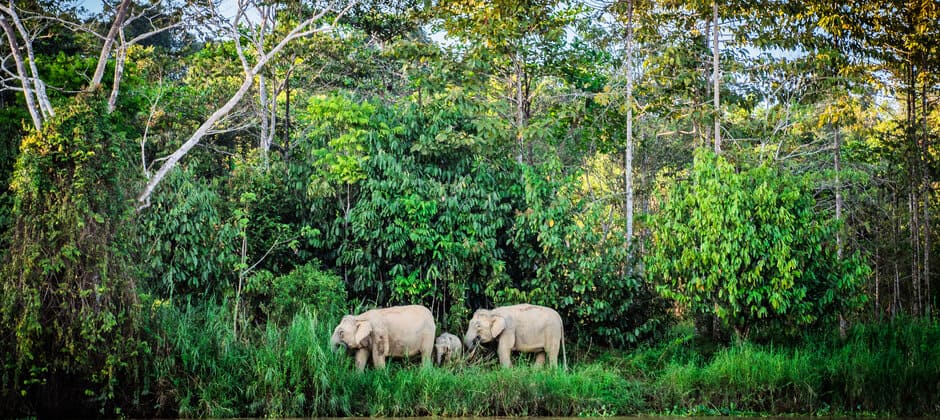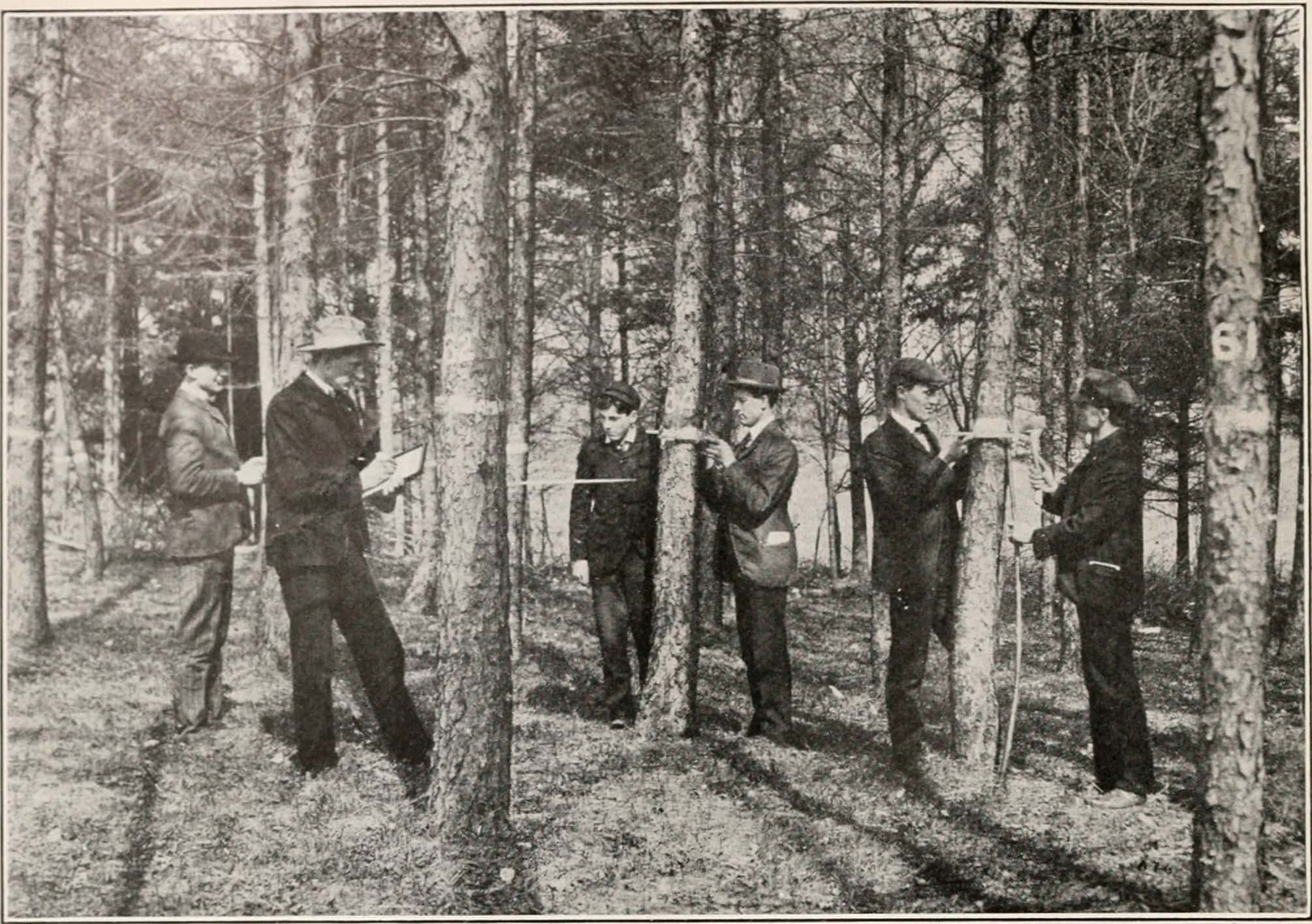Share this article
TWS2020: Palm oil drives elephants onto Bornean farmland
Elephants in Malaysian Borneo fenced out of large swaths of habitat around palm oil plantations are being pushed onto local farmers’ properties.
Researchers are looking at ways to reduce the resulting conflicts.
“For elephants, the main threat [in Malaysian Borneo] is habitat loss, particularly the loss of habitat to palm oil plantations,” said TWS member Elena Rubino, a postdoctoral researcher at Texas State University involved in ongoing research she presented by video at The Wildlife Society’s virtual 2020 Annual Conference.
Borneo forests are being converted to palm oil at unprecedented levels. Data from one research firm in Indonesia shows the industry is responsible for 39% of forest loss between 2000 and 2018 on the island, which includes territory governed by Malaysia, Indonesia and Brunei.
Elephants can trample young palm oil trees when passing through the large swaths of areas that have been converted from primary rainforest to plantation land. As a result, plantations erect electrified fences, which reduces the conflicts between the elephants and the palm oil industry. But these obstacles also result in the overall shrinking of areas available to Borneo elephants (Elephas maximus borneensis).

Understanding how to better harness ecotourism opportunities may improve elephant tolerance.
Credit: Oliver Deppert
Part of the consequence is that these elephants spend more time on the land of smaller farmers’ land who may grow a mixture of palm oil and other crops. Those farmers often lack the resources to put up fences or take other effective action to repel the massive mammals. Aside from the damage they cause to young palm oil trees in these areas, elephants can also trample water tanks and cause other destruction in these small land plots.
“It creates wildlife conflict — human-elephant conflict,” Rubino said.
She and her colleagues wanted to better understand how these locals perceived elephants as a means of finding ways to potentially decrease these conflicts.
A group of interviewers spoke to locals — all small landholders owning 3-15 acres — in their language in three different districts of Malaysian Borneo. They spoke to 37 people, all long-term residents in the community that were about 40 years old.
They found that overall, most people they spoke to were afraid of elephants, despite the fact that many of them had never even seen one before. As a result of anecdotes and stories, they mostly believed the elephants could cause damage to their property. Hearing the elephants in the distance caused them immediate fear.
Still, most perceived elephants as naturally gentle creatures, except when they were mismanaged by humans. Then, some believed the animals may turn aggressive.
“They’re not aggressive by nature but we make them aggressive,” Rubino explained as a common belief among landowners.
The survey also revealed that locals had a high degree of respect for the elephants, a concept somewhat akin to the idea that the elephants wouldn’t hurt them. They even referred to them as their grandmother, Rubino said. Some respondents even expressed the idea of a possible way to communicate with the elephants through their hearts: “If we ask them to peacefully move through our garden area, they’ll do that,” she explained was a common idea.
These small landowners often use simple tools to scare away the elephants, such as noise cannons or burning tires. But these are temporary solutions at best.
“Everyone recognizes that this is short-term and doesn’t really work,” Rubino said. She added that while people were often proud to have elephants in their area, they also believed they were pests sometimes and that it wasn’t their responsibility to deal with wildlife conflict.
The way that locals saw the elephants overall in terms of respect is a positive place to start, Rubino said, since it points to ways they might possibly increase tolerance in the future.
Another positive response from the locals included their perception that these elephants could represent a potential benefit for the community through ecotourism.
“That seems like a really easy initial jump. People recognize there’s a value there, they just don’t know how to harness it,” Rubino said.
But helping people develop ecotourism may improve tolerance overall.
Another potential way to decrease these conflicts is by working with the larger plantations to decrease the use of fencing. Elephants cause little damage to mature palm oil stands, which make up much of the territory in plantations. If the fences are only kept around swaths of young trees, it would open up more space for elephants without causing many problems for the palm oil industry.
She said these types of surveys are important in conservation because local buy-in is critical if the projects are going to work.
“We always forget that there are people on the ground that have to live with wildlife,” she said.
This research was presented at TWS’ 2020 Virtual Conference. Conference attendees can continue to visit the virtual conference and review Jones’ paper for six months following the live event. Click here to learn about how to take part in upcoming conferences.
Header Image: Elephants are losing habitat to palm oil plantations in Borneo. Credit: Oliver Deppert








